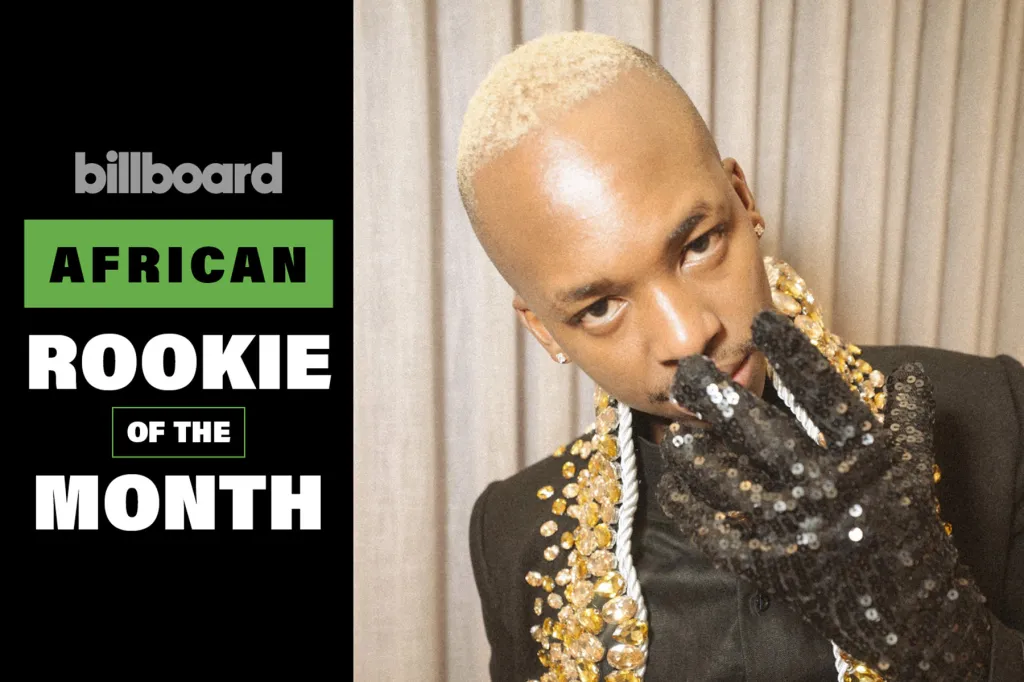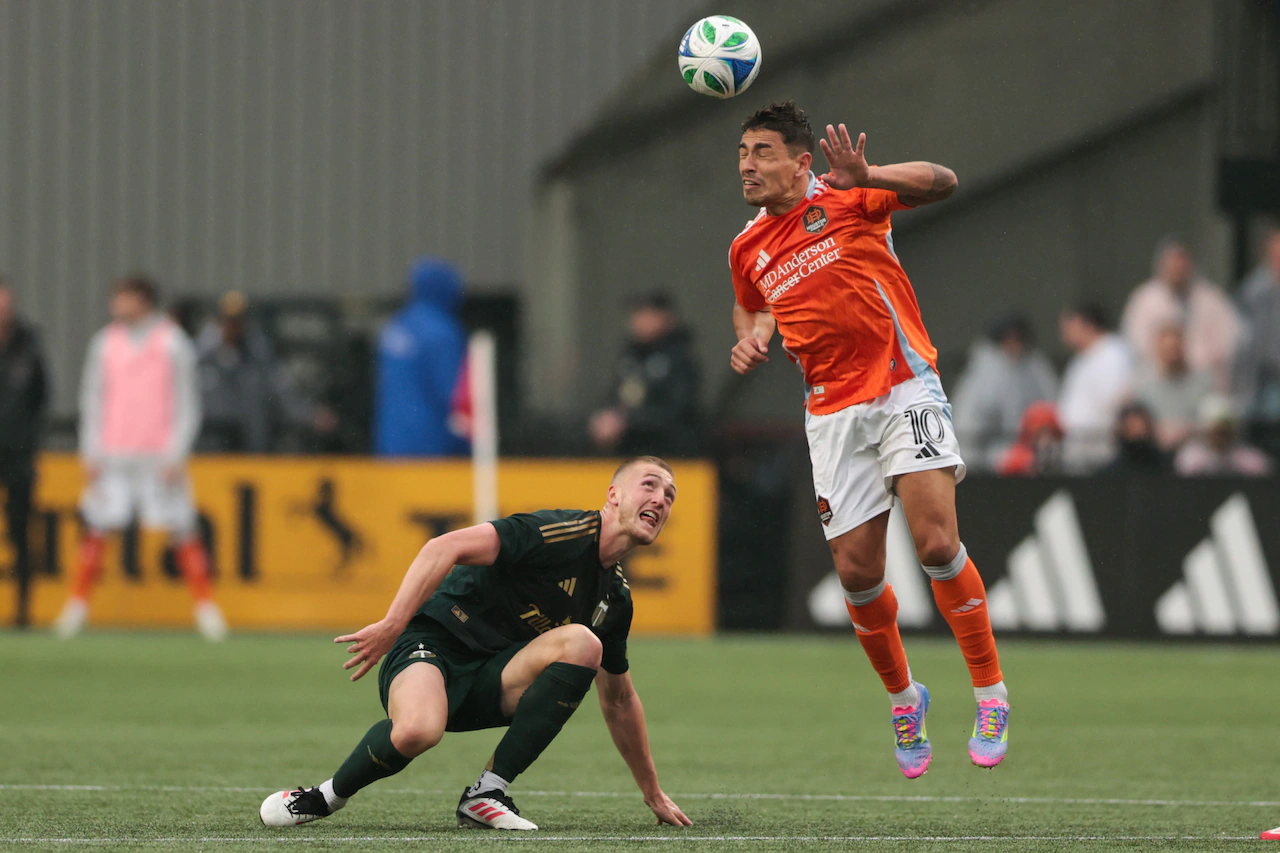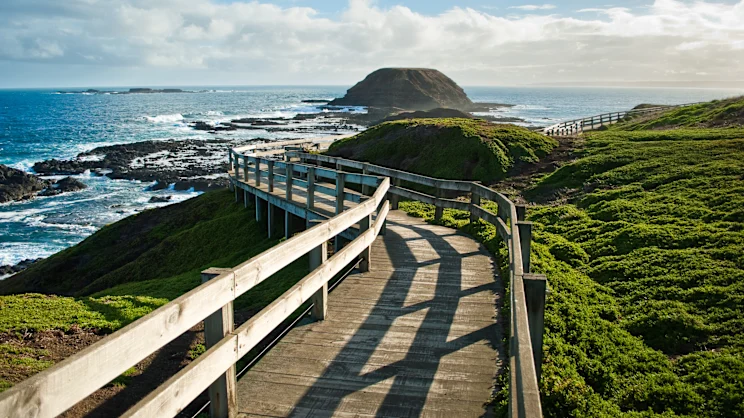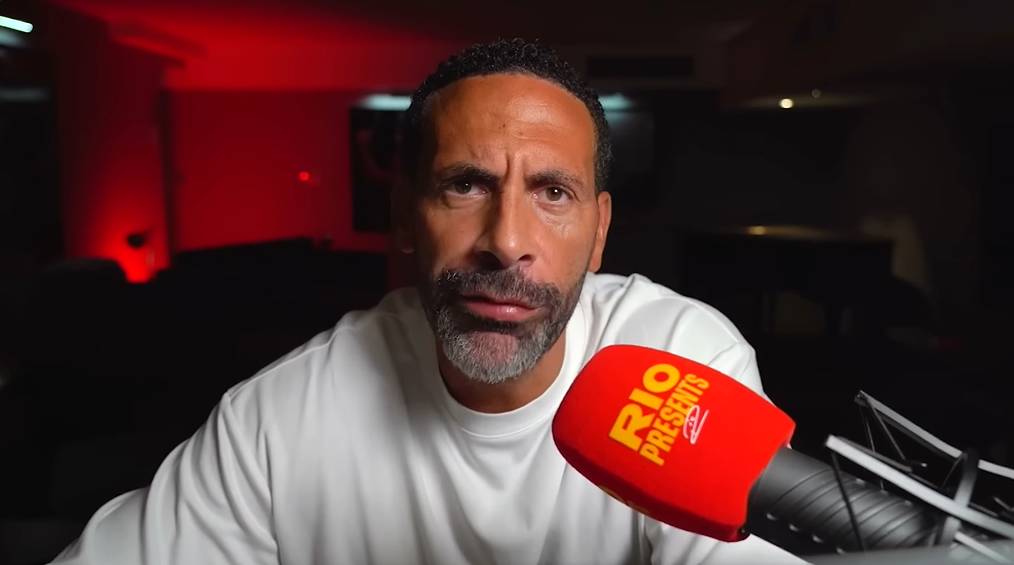
Ciza always knew his time to rule would come. His father Thembinkosi “TK” Nciza co-founded TS Records in 2001 with Sbusiso Leope, a radio DJ and TV presenter better known as DJ Sbu. And his mother Nhlanhla Mafu served as the lead vocalist for the Afropop group Mafikizolo, whose 2013 international hit “Khona,” featuring fellow South African kwaito group Uhuru, won record of the year at the South Africa Music Awards and song of the year at the MTV Africa Music Awards in 2014, while Mafikizolo earned a best international act: Africa nomination at the BET Awards later that year.
But the artist and DJ born Nkululeko Nciza hasn’t let the “nepo baby” stereotype affect his ascent. “Where I’m from, they’ve just embraced the fact that I’m from a musical [family]. For them, it’s like music royalty,” Ciza tells Billboard.
After performing in high school competitions with his rap group KIC (Kids in the City), Ciza went solo at age 18 and released his debut record, “House Party,” which grew popular among the local high schools. “I kind of had a child star moment,” he recalls.
The following year, he booked a one-way flight to Atlanta, Ga. to attend Morehouse College to study business entertainment, but the pandemic derailed his plans. And Afrobeats’ global dominance made Ciza switch gears. “That’s when I was like, ‘Rap is not my thing anymore. I want to do Afrobeats,’” he says. “Afrobeats was taking over the world at the time. I was like, ‘OK, amapiano is the biggest thing in South Africa. But the people who are really doing it for me and carving actual superstars were in West Africa.’”
After releasing the singles “Come Alive” and “Adje” in 2020, Ciza started making a name for himself a year later when he collaborated with South African superproducer and amapiano pioneer DJ Maphorisa (whose former group Uhuru produced his mother’s group Mafikizolo’s “Khona” smash) on the prosperous Afrobeats-meets-amapiano record “Bank Notification,” which was later included on Ciza’s debut EP that year, Golden Boy Pack. But with COVID-19 “[slowing] down the momentum,” he says, and Ciza struggling to find his sound in the market, he took a brief hiatus from releasing music.
“This is when I fell in love with DJing and Afro house,” Ciza says. At the time, 3-step – South Africa’s latest dance music genre that is named after its signature three-kick drum rhythm and blends Afro tech, amapiano and broken beat – was bubbling, and Ciza was determined to put his own spin on it. With the help of producer Jazzworx and singer Thukuthela, Ciza created an international hit with “Isaka (6am)” in April.
“‘Isaka (6am)’ is basically a prayer, me asking God, ‘Yo, I wanna become a better man for my son. I want to become a better man for my family. But I also want to live my dreams. Let this hustle be fruitful, and may people see my talent,’” he explains.
The word “isaka” directly translates to the bag in Zulu. As for the 6 a.m. timestamp in the title, it either represents the time one gets home after a long day (and night) of work, or when one returns after spending their hard-earned money at the club. Either way, Ciza has played “Isaka” in the club at 6 a.m. and even later, “and in different parts of the world, too,” he chuckles.
“My real name is a Xhosa name, Nkululeko, which means freedom. And I think that’s my purpose in the music industry: When I step on stage, when I’m on the mic, I just want people to feel free and set them free from whatever pain or heartbreak or bad thing,” Ciza says. “You can have a hit record that people can just sing along to, but having a spiritual song that heals is also a blessing.”
“Isaka (6am)” spent nine weeks atop the South Africa Songs chart and has earned 81.5 million official global streams, according to Luminate (through Sept. 18). And with the help of some marquee DJs, and thoughtfully curated remixes, “Isaka (6am)” has also taken over the European scene. Black Coffee played the “Vanco Mix – In Joburg” version during his residency at Hï Ibiza while Ciza was behind the booth with him. And Keinmusik’s Rampa and Adam Port played the then-unreleased Major League Djz, Kidflo and Kotto remix at Brunch Electronik in Madrid and at Domaine National de Saint-Cloud in Paris.
“This is the Renaissance period in African music, and personally, I’m so happy to be a part of it,” says Ciza. “People used to say, ‘Africa is next.’ I really do think it’s now.”
Billboard spoke with September’s African Rookie of the Month about recording “Isaka (6am),” manifesting a collaboration with Omah Lay before he and Tems hopped on “Isaka II,” and Jimmy Iovine being an unexpected guest at his dinner with Black Coffee in Ibiza.
How much did your parents’ career paths in the music industry impact you to carve out your own?
I saw my dad literally build superstars from home. He had so many different local South African superstars living with us growing up, [like the late Afro-soul star Zahara]. That definitely gave me a lot of drive, seeing all of these people go from zeroes to heroes, and some sort of dream of, “OK, this is actually possible.”
From my mother, it was her stardom, her effort in making sure she is the best version of herself, and the amount of time she would spend on her craft. My mother used to make me dance at family gatherings. She would make sure I do school concerts and dance competitions because she always said, “My son, there’s something in you.”
Considering your father is your manager, what’s the most important lesson he’s taught you about the business that has stuck with you till this day?
You have to want it the most. For you to be the best, you have to be the hardest working because there’s a lot of competition out there. There’s a kid who’s hungrier than you. Always showing up is the biggest lesson that my dad instilled in me.
What kind of music were you listening to growing up, and how did that inspire you to make the music you make today?
My parents had a lot of DVDs, and I used to always watch [Michael Jackson’s] This Is It documentary. My mother would work a lot with West African artists, and she put me onto Wizkid, which is one of my favorite artists of all time. Seeing him break African music in the world at that time was amazing, especially when Drake hopped on his record. I was like, “OK, Africans can actually become global superstars.” And my mother’s group showed me how far our music can travel.
Later on in my teens, I fell in love with hip-hop. At the time, Migos was a big thing, really the whole Atlanta hip-hop scene. We all used to want to be Migos, and at school, we would dress like them. As I got more mature, I started coming back home and making Afrobeats. When I took a break, all of the history and all of the things I’ve been exposed to, all of that data collected, becomes one. [I’m] just an African dance music guy who has a lot of influences. The biggest one is also Drake. Drake taught me how to commercialize things — how do you make it sellable”
And what kind of music do you listen to now?
Afrobeats, alternative music, amapiano. I like The Notorious B.I.G., Odeal, Doja Cat. I love pop, too. Justin [Bieber] is one of my favorite artists of all time, because he knows how to blend everything. I’m very versatile with my ear.
How did you sign to LVRN? And why was that the right decision for you?
I met Tunde [Balogun, CEO/co-founder] in 2022. He came down to South Africa looking for new, fresh talent. I was always in the shadows, but he always saw stardom in me. He was like, “OK, I know you’re making Afrobeats and it’s cool, but you need something that’s going to represent you and fit your story. You have to just find it.”
LVRN believed in me before the big song. [Laughs] In this day and age, every label is looking for the hit. They don’t look at artist development. They’re just looking for numbers. But for me, they were people who didn’t mind sacrificing the time for artist development.
Take me back through the making of “the big song,” “Isaka (6am).”
I was in every single studio you could find in South Africa. But I couldn’t find the right people to work with. I hit [Jazzworx] up. There was a lot of people in that session ‘cause they said, “Yo, Ciza’s coming.” And I hate working with a million people in the studio. I kind of had to be rude and ask people to leave. They left, and it was just me, him and Thukuthela. Jazz started making the beat and I was like, “Yo, don’t do too much. Try to simplify that. Make the bass a bit like this.”
Then I started writing. I was so nervous maybe because I knew the song was a prayer. As soon as I hopped on the mic, magic just came out of me. It was a very spiritual and memorable moment. As soon as I stopped recording, we looked at each other and were like, “OK, this is something.” Thukuthela comes in and brings in the dancing part, but the song was super full. I had to tell them, “Guys, let’s simplify it because it’s also dance music.” At some point, people do just want to listen to the beat and be in the spirit. That was the creative process.
Later comes the promo side of things. I started shooting TikToks, and I actually gave the song to a friend of mine and was like, “Yo, play this when you’re just chilling with the girls or whatever.” She played it. That video went crazy, had a million views, people started tagging me. I took another video. When I woke up, my life changed. The song became super huge, but it was unreleased. That’s when I gave the label a call and was like, “Yo, guys, I’ve got one.” And the rest is history.
When you posted on Instagram about what you learned on your 24th birthday last month, you wrote that you “learned you cannot make Ciza money when I received a cease & desist from the SA Reserve Bank.” What happened?
At the time, [the “Isaka (6am)” music video had] 10 or 15 million views. I was like, “Yo, guys, this is part of me being a patriotic citizen, showcasing South African money.” And they were like, “Yeah, you can’t put your face on it. We’re gonna take you to court.” We had a discussion with the label [hoping] switching it up on YouTube didn’t affect the views. That was my biggest thing because I spent so much money and time and sweat on the video just for it to be taken down. It felt like sabotage. But because I work with some of the best people, we figured out a way to replace that scene and not affect the [views].
How did you get Tems and Omah Lay on “Isaka II”?
The crazy part is I’ve always wanted to work with [Omah] from my Afrobeats days. I met him two years ago when he came to South Africa for a show. He was there with his whole team and security, and I took a chance and walked up to him. His security was like, “No, no, no, no.” And then he saw me and was like, “No, let him go.” I went to him and started talking to him like, “Yo, dude, you’re like a spiritual healer. Your music is so beautiful and I resonate with it. I’m gonna work with you one day.” It was a manifestation. He kept saying, “Yeah, dude, I see the record you had with Maphorisa. Keep going, but go find yourself, too. Don’t just say you’re gonna work with me. I don’t know if you’re gonna work with me, but just keep going.”
Two years later, [“Isaka (6am)”] blows up and I receive a DM from him while I’m on the road. He’s like, “Dude, this song feels so spiritual.” I was like, “You should actually hop on it.” He sent me a [voice note] 10 minutes later. I was like, “Oh, he definitely wrote this verse a week before.” And he actually fits so well, it feels like me and him were in the same room. With Tems, she never does remixes. But at the time, Omah Lay and Tems had the same manager, Muyiwa. He played it for her like, “Hey, this song is so beautiful and this artist is a hard worker from South Africa. I’ve not seen this in a long time.” I think Tems liked that. When I was in Nigeria, I met up with Muyiwa and he put me on a call with her.
But at the time, she didn’t put down the verse. She was like, “Enjoy the moment and move with the song.” Which is so ironic, because when you listen to the song, the first lyric she says is, “I’m ready.” I feel like it was direct communication between me and her. She just goes in and speaks about doing music your own way, which is the perfect message for the song and for African music — like the collaboration between West and South Africa.
You’ve also released regional remixes of “Isaka (6am)” for Beirut, Joburg, Ghana and Miami. What inspired that release strategy?
Europe was buzzing about the song, and it was a business decision for me to be like, “Ciza, you do want to play in Ibiza one day. You do want to play in Mykonos as much as you want to be on a Grammy stage. So why not hit two birds with one stone?” As I was going to Europe, I started releasing these Afro house remixes with Vanco, who is an amazing DJ blowing up like crazy in the European scene. I was like, “Let me release a remix pack with different sounds from different places in the world.” When you’re in Miami and you’re in a house club, they’ll play that. Black Coffee invited me to Ibiza just to experience that moment with him. And I think it’s because of the decision I made to make the song relatable in every form and way.
How did Black Coffee reach out to you, and what was it like to hear “Isaka” in Ibiza?
I was in London, and he invited me and my team to Ibiza. We went there and my dad was like, “Coffee wants to see you.” I was like, “Oh, Dad, I thought I’m just gonna see him at the show.” [Coffee] invited me to a dinner. When [my dad and I] get to the dinner – this is one of the craziest stories – they’re like, “OK, this is Black Coffee’s table.” Jimmy Iovine is there with his wife, just chilling. I’m like, “Wait, am I in the right spot?” He’s like, “Oh, you’re the kid!” [Coffee] was an hour late, so we’re just there chilling with Jimmy Iovine and his wife and he’s just giving me so much game.
[Coffee] came later, and because his girlfriend really loves the record, we just kept singing it throughout the whole dinner. Later on, we went to his residency at Hï and his girlfriend grabbed me toward the stage to say, “Yo, go, go, go.” I’m like, “What’s going on?” She’s like, “He’s about to play your song!” And then he’s like, “Ciza, Ciza!” and plays the song. The whole crowd went crazy. Surreal moment, very beautiful moment.
Is there one particular piece of advice that Jimmy told you during that dinner that stood out to you?
I’m a singer and a DJ/producer. How do I combine the two worlds? He’s like, “People will adapt to you. That’s what’s gonna make you special. There’s no rules to this as long as it feels right.” That’s the best thing I took from him, and also that greatness takes dedication.
The “Isaka (6am)” remix with Major League Djz, Kidflo and Kotto dropped earlier this month. How did you reconnect with Major League Djz four years after you collaborated with them and Abidoza on “Carolina” from your Golden Boy Pack EP?
Major League Djz have always supported me. When I started posting videos of myself DJing, they were sending me music to play. And when I finally dropped [“Isaka”], they were going crazy in Europe playing the song. I released other remixes, but they were like, “Ciza, we have the right remix.” Their remix was going crazy. Keinemusik was playing it. I was like, “OK, I’m sorry guys for taking time.” And then I dropped it with them. It’s doing really well, especially in the Afro house community.
Who would you love to collaborate with next?
Wizkid. I definitely want to work with Tyla. I think Drake on a 3-step record would be so beautiful. I want to work with Tems on something different, like something very Afro house. I’d like to work with Rema, too.
What’s next for Ciza in 2025?
Ciza’s Palace the album is coming out. I’m just gonna bring everyone into my world. It’s very spiritual, it’s very fun, it evokes a lot of emotions. I recorded the music in different parts of Africa and London and with so many different people. I’m also innovating how people view dance music. I’m breaking so many rules with it.



